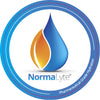Sjögren's Disease and Dysautonomia


Living with a chronic condition like Sjögren's disease can be challenging, especially when it intersects with other health issues such as dysautonomia, particularly postural orthostatic tachycardia syndrome (POTS).
What is Sjögren's Disease?
Sjögren's disease is an autoimmune disorder that primarily affects the body's moisture-producing glands. Think dry eyes, mouth, sinuses, and even skin.
According to the Mayo Clinic:
The condition often accompanies other immune system disorders, such as rheumatoid arthritis and lupus. In Sjogren's syndrome, the mucous membranes and moisture-secreting glands of your eyes and mouth are usually affected first — resulting in decreased tears and saliva.
Although you can develop Sjogren's syndrome at any age, most people are older than 40 at the time of diagnosis. The condition is much more common in women. Treatment focuses on relieving symptoms.
When Sjögren's disease coexists with dysautonomia, particularly POTS, it can exacerbate symptoms and complicate how you mange your care.
Sjögren's and Dysautonomia
Sjögren's disease is characterized by inflammation that primarily targets the body's moisture-producing glands, leading to symptoms such as dry eyes, dry mouth, and dry skin. However, Sjögren's disease can also affect other organs and systems, leading to systemic complications such as joint pain, fatigue, and neurological symptoms.
Dysautonomia, particularly POTS, is a condition characterized by dysfunction of the autonomic nervous system, which regulates essential bodily functions such as heart rate, blood pressure, and temperature control. In individuals with POTS, dysregulation of the autonomic nervous system can lead to symptoms such as lightheadedness, palpitations, fatigue, and difficulty regulating blood flow.
The relationship between Sjögren's disease and dysautonomia, particularly POTS, is complex and multifaceted. While the exact mechanisms underlying this connection are not fully understood, research suggests that autoimmune inflammation and autonomic dysfunction may interact, leading to overlapping symptoms and exacerbating disease severity.
Managing Symptoms of Sjögren's Disease
Managing symptoms of Sjögren's disease and dysautonomia, particularly when they coexist, comes with unique challenges. Here are some tips for managing symptoms effectively:
Stay Hydrated.
Hydration is crucial for individuals with Sjögren's disease and dysautonomia, as dehydration can exacerbate symptoms such as dry mouth, fatigue, and lightheadedness. Drink plenty of water throughout the day, and consider using oral rehydration solutions (ORS) like NormaLyte to replenish electrolytes lost through sweating or dehydration.
Manage Dryness.
Combat dry eyes and dry mouth associated with Sjögren's disease by using lubricating eye drops and moisturizing mouth sprays or gels. Humidifiers can also help add moisture to the air, particularly during the winter months or in dry climates.
Pace Yourself.
Individuals with dysautonomia, particularly POTS, may experience fatigue and lightheadedness with exertion. Pace yourself by breaking tasks into manageable chunks and taking frequent breaks as needed. Prioritize activities and conserve energy for essential tasks.
Dietary Modifications.
Some individuals with Sjögren's disease may benefit from dietary modifications to manage symptoms such as inflammation and joint pain. Consider incorporating anti-inflammatory foods such as fruits, vegetables, and omega-3 fatty acids into your diet, and limit foods that may exacerbate inflammation, such as processed foods and refined sugars.
Temperature Regulation.
Dysautonomia can affect the body's ability to regulate temperature, leading to intolerance to heat or cold. Dress in layers to accommodate fluctuations in body temperature, and use cooling products such as cooling vests, fans, or cooling towels to stay comfortable in warm weather.
NormaLyte for Symptom Management
NormaLyte, an oral rehydration solution, can be a valuable tool in managing symptoms of Sjögren's disease and dysautonomia. By replenishing electrolytes lost through dehydration or excessive sweating, NormaLyte helps maintain hydration and support overall health and well-being. Drinking NormaLyte ice cold can provide a refreshing burst of hydration, making it particularly beneficial for individuals with dysautonomia who struggle with temperature regulation.Remember to work closely with healthcare providers to develop a personalized treatment plan that addresses your unique needs. With patience, perseverance, and support, it is possible to thrive despite the challenges of Sjögren's disease and dysautonomia.









Leave a comment